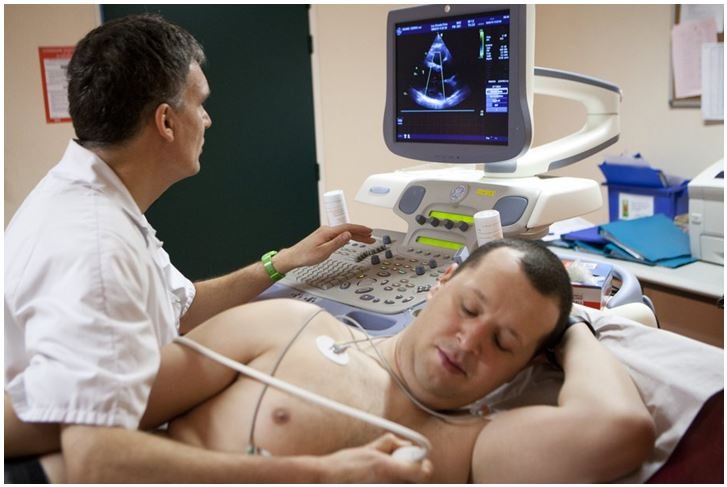2D Echo / ECG
- 2D Echo (Two-Dimensional Echocardiography) is an ultrasound-based imaging test that creates real-time moving pictures of your heart. It shows the size, shape, pumping strength, and movement of the heart valves and chambers.
- ECG (Electrocardiogram) records the electrical activity of the heart through small electrodes placed on the chest, arms, and legs. It helps detect irregular heart rhythms, heart attacks, and other cardiac conditions.

Types of 2D Echo / ECG
2D Echo
Transthoracic Echocardiography (TTE) – standard chest ultrasound
Transesophageal Echocardiography (TEE) – through the esophagus (done in special cases)
Stress Echocardiography – done during exercise or medication-induced stress
ECG
Resting ECG – recorded while the patient is lying down
Stress or Exercise ECG (Treadmill Test, TMT) – recorded while walking on a treadmill
Holter Monitoring – continuous ECG monitoring over 24-48 hours
Common Uses of the Procedure
Evaluate chest pain, shortness of breath, palpitations, dizziness
Diagnose heart diseases like coronary artery disease, valve disease, cardiomyopathy
Monitor heart function after a heart attack or cardiac surgery
Detect heart murmurs, congenital heart defects, or pericardial effusion
Assess heart function in patients with high blood pressure or diabetes
How Do I Prepare for My 2D Echo / ECG?
2D Echo: No special preparation is usually needed. Wear comfortable clothes; you may need to change into a hospital gown.
ECG: No fasting or preparation required. Wear loose-fitting clothes to allow access to the chest area. Avoid applying lotions or oils on the chest on the day of the test.
For Stress Echo or Stress ECG, you may be advised to avoid heavy meals, caffeine, and certain medications; your doctor will provide specific instructions.
What Will Happen During My 2D Echo / ECG?
2D Echo: You will lie on an examination table. A technician will apply gel to your chest and use a handheld device (transducer) to capture heart images. The test usually takes 20-40 minutes.
ECG: Small electrodes will be attached to your chest, arms, and legs to record your heart’s electrical signals. The test typically takes 5-10 minutes and is completely painless.
What Are the Reasons for a 2D Echo / ECG?
Your doctor may recommend a 2D Echo or ECG to:
Investigate symptoms like chest pain, breathlessness, or palpitations
Check for heart valve problems or heart muscle weakness
Monitor chronic heart conditions
Assess heart health before surgery
Screen for heart disease in high-risk individuals
